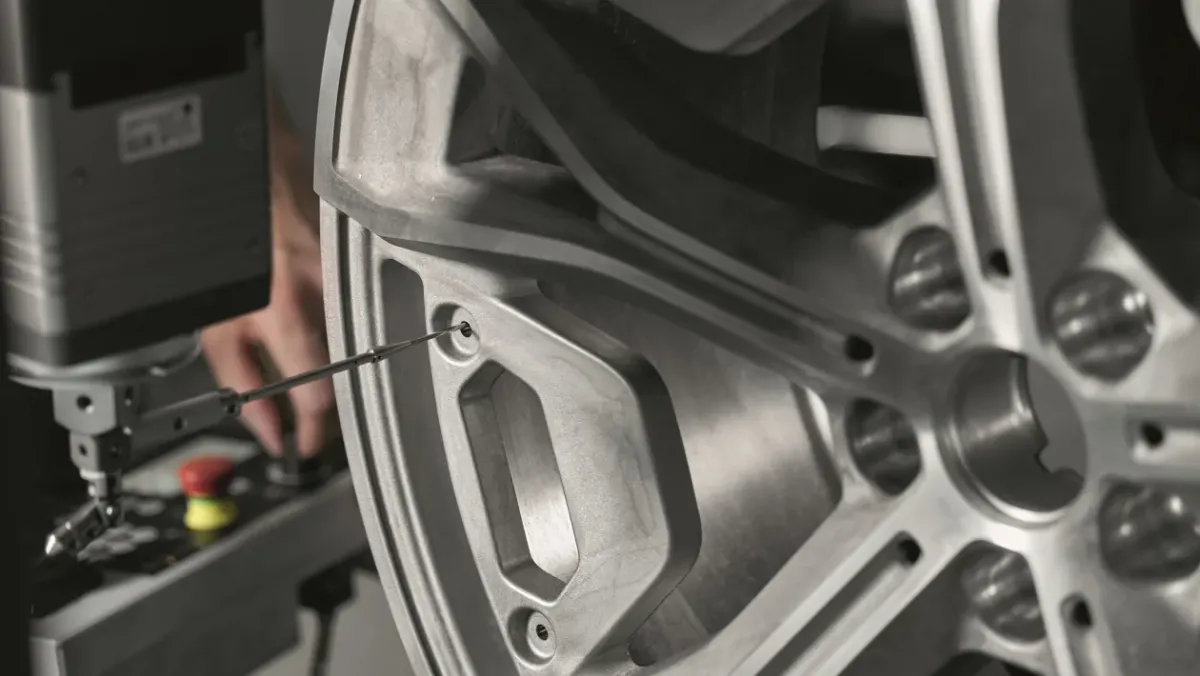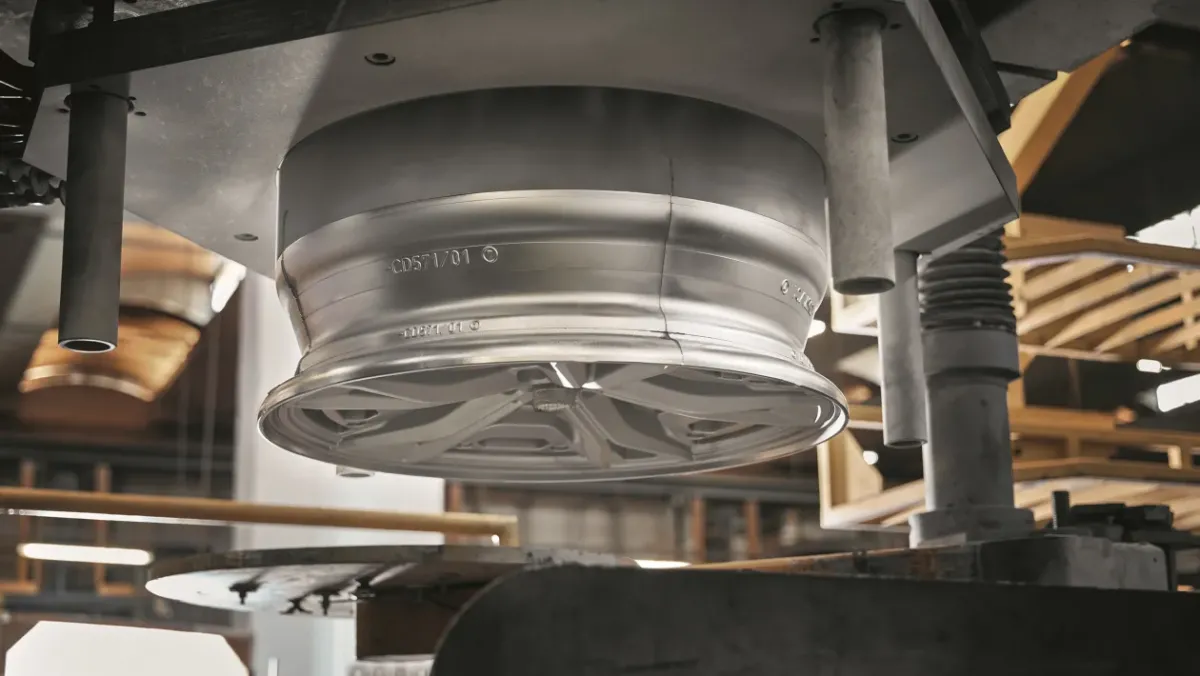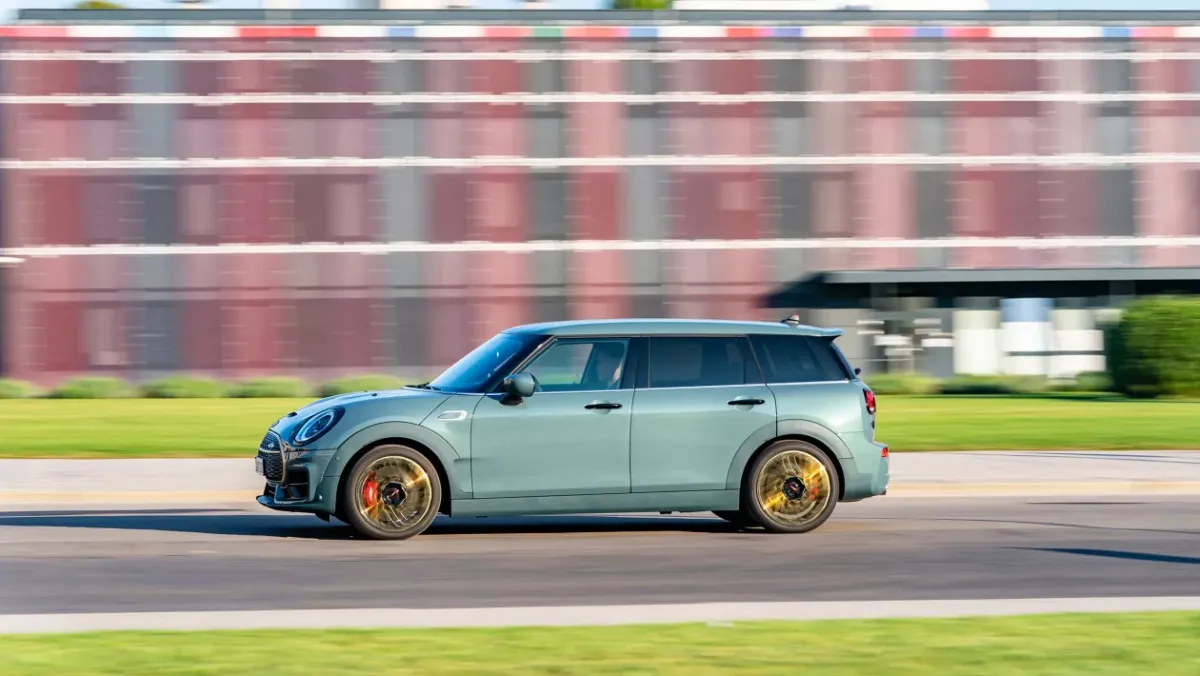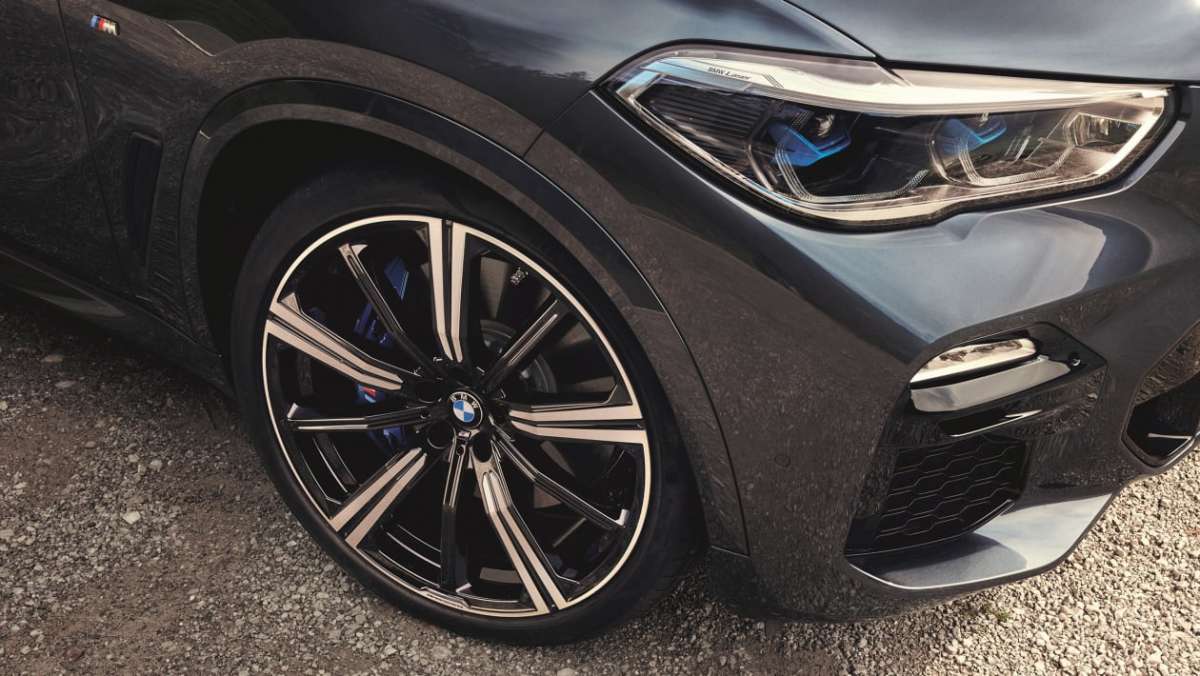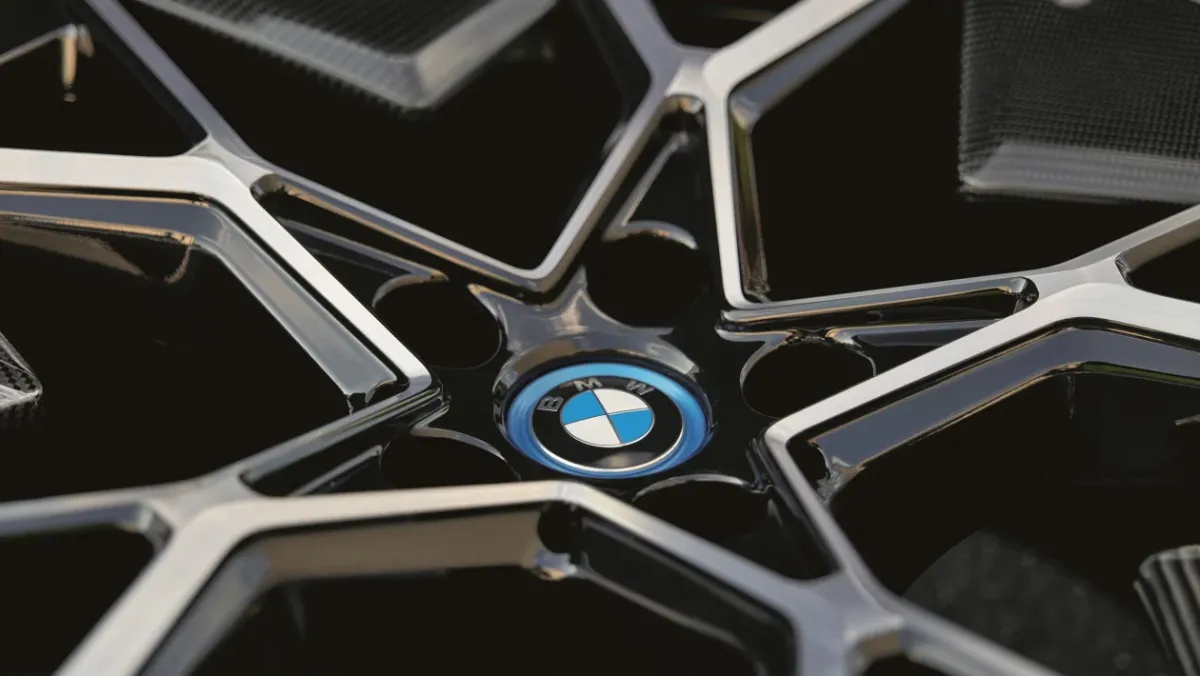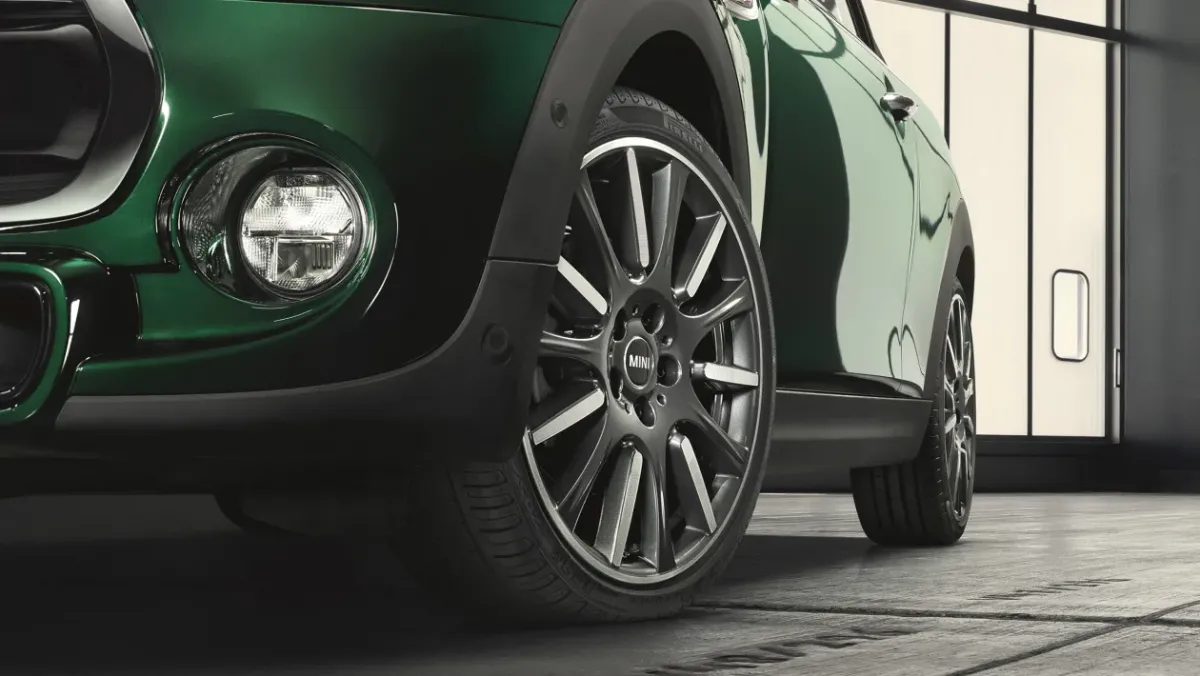New sustainable energy contracts to be drawn up for the supply of over 10 million alloy wheels annually
BMW has launched a new initiative to clean up production of the alloy wheels it fits to all its cars across global markets. The new agreement between BMW and its suppliers will ensure that from 2024 onwards, the energy used in the production of all cast alloy wheels will be from 100 renewable sources, saving up to 500,000 tonnes of CO2 per year.
The transition to a sustainable energy source will apply to all stages of the manufacturing process, but have the greatest effect in the energy-intensive electrolysis process required in the production of automotive-grade aluminium from its raw material. This change alone should yield up to a 50 percent reduction in their carbon footprint.
BMW will also focus on other sustainability goals, including increasing the amount of recycled secondary aluminium used in its alloy wheels. The wheel supplier of Mini’s upcoming 2023 Countryman SUV will be the first to apply this new process, with 70 percent of the aluminium content used in the wheels being recycled, which when combined with the sustainable energy being used in their production will reduce emissions by as much as 80 percent as when compared to conventional manufacturing processes. 6
Joachim Post, member of the Board of Management of BMW AG responsible for Purchasing and Supplier Network said of the initiative: ‘Green power is one of the biggest levers for reducing CO2 emissions in our supply chain. We have already signed more than 400 contracts with our suppliers, including suppliers of wheels and aluminium, requiring them to use green power.’
While this is a positive step in the decarbonisation of the automotive manufacturing industry, BMW’s alloy wheel supply only represents around five percent of its annual emissions in total. However, BMW’s aggressive targets for the wide reaching decarbonisation of its supply chain remains one of the most ambitious across the industry, with BMW is targeting a 20 percent reduction in total emissions from 2019 levels by 2030.
This article originally appeared at evo.co.uk
Copyright © evo UK, Autovia Publishing

